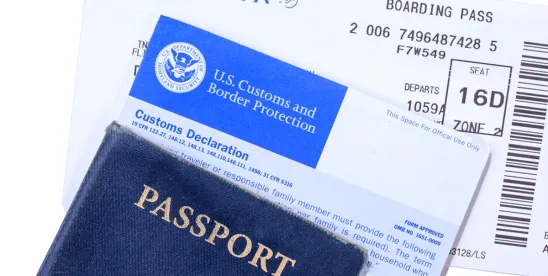On Sept. 6, 2025, the U.S. Department of State issued updated guidance directing that nonimmigrant visa (NIV) applicants (E, F, H, J, L, O, etc.) must generally schedule their visa interview appointments at a U.S. embassy or consulate in their country of nationality or legal residence.
For nationals of countries where routine NIV processing is not available, the guidance specifies designated embassy or consulate posts.
Below is an overview of what employers and foreign national employees should be aware of under the new policy, and practical considerations to help mitigate its impact.
What the Policy Says
Applicants must schedule interviews in their country of nationality or country of residence. If applying based on residence (rather than nationality), the applicant must be able to demonstrate legal residence in that country. For certain countries without routine visa operations, the Department of State has designated specific embassies or consulates (for example, Iran → Dubai; Venezuela → Bogotá; Russia → Astana or Warsaw; Ukraine → Krakow or Warsaw; etc.). Visa application fees remain non-refundable and non-transferable, even if the applicant is found ineligible due to interview location. Applicants applying outside of their country of nationality or residence may face longer wait times for appointment scheduling. Existing appointments generally will not be cancelled. Exceptions apply for diplomatic and official visas, certain UN-related visas, and humanitarian or medical emergencies.
Practical Implications for Employers and Employees
This policy shift has several practical implications for companies sponsoring nonimmigrant visas and the foreign nationals they employ.
Applicants may face longer appointment backlogs in their country of residence or nationality, since the option of scheduling in third countries with shorter wait times has been curtailed. Employers should factor in potential delays when planning start dates, project timelines, and mobility schedules.
Employees applying based on residence must provide evidence of legal residence in that country (for example residence permits, lease agreements, local tax records, utility bills, or visa stamps). Employers and immigration teams may wish to assist employees in gathering this documentation before scheduling.
Some employees temporarily abroad for business or tourism, but not legally U.S. residents, will need to return to their country of residence (or designated processing post) to apply, potentially incurring additional travel, lodging, and logistical expenses. Employers may wish to budget for or mitigate these costs in their mobility or relocation planning.
If an applicant mistakenly schedules an appointment in a third country without satisfying the residence requirement, there is risk of delays, additional scrutiny, or loss of the processing fee. Employers should coordinate with counsel or local embassy guidance when booking appointments to enhance compliance.
HR and immigration teams should consider reviewing internal visa onboarding or mobility checklists, updating processes, training employees and mobility stakeholders about the new requirement, verifying residence eligibility, identifying appropriate consular posts, and building buffer time into planning cycles.
Individuals with existing appointments at embassies or consulates where they are applying as third-country nationals may wish to consider cancelling those appointments and rebooking in their home country. Immigration practitioners are reporting that consular officers in some locations are informing applicants they must process their cases in their home country. This is not being applied consistently at all consulates, which means applicants may face uncertainty or inconsistent treatment if they proceed with a third-country appointment.
Employer Considerations
To address this change proactively, employers may wish to consider:
- Reviewing all pending or upcoming NIV cases and confirming whether the interview location aligns with the new requirement;
- Ensuring employees gather residence evidence in advance of booking appointments;
- Starting visa planning earlier to accommodate possibly longer appointment wait times;
- Incorporating additional buffer time in project and mobility timelines, especially when international relocation or training assignments are involved;
- Budgeting for potential extra travel or lodging costs if employees must return to their country of residence or designated processing post;
- Advising employees with third-country appointments to cancel and rebook in their home country, given reports of consular officers enforcing the residence-based rule;
- Coordinating with local consular resources or outside counsel in the countries involved to monitor appointment availability and evolving consular practices; and
- Communicating the change clearly to employees, especially those on temporary assignments or remote postings, so they understand the new constraints and can plan accordingly.
Conclusion
The September 2025 Department of State directive requiring NIV applicants to interview in their country of nationality or legal residence introduces a meaningful shift for U.S. employers and their foreign national workforce. While the policy aims to localize adjudication and improve the alignment of interview processing with applicants’ residence, it also brings potentially new complexities: logistical planning, documentation, scheduling delays, and costs. Employers sponsoring nonimmigrant visas should consider treating this as a new baseline for visa planning. Early coordination, intentional timeline buffers, logistical planning for potential travel burdens, and clear communication with employees may be helpful in minimizing disruptions and ensuring timely visa processing.



 />i
/>i

